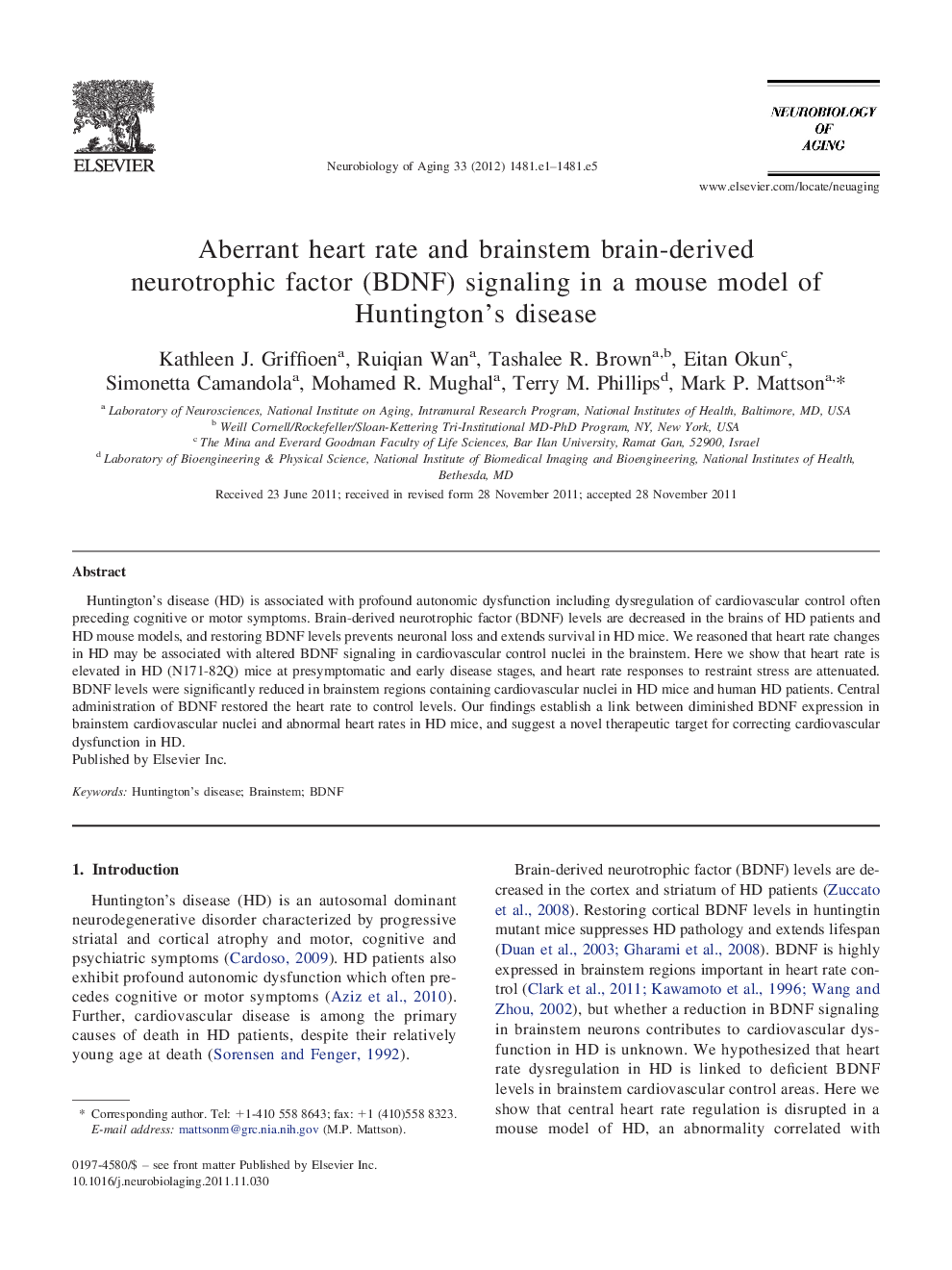| Article ID | Journal | Published Year | Pages | File Type |
|---|---|---|---|---|
| 6808910 | Neurobiology of Aging | 2012 | 5 Pages |
Abstract
Huntington's disease (HD) is associated with profound autonomic dysfunction including dysregulation of cardiovascular control often preceding cognitive or motor symptoms. Brain-derived neurotrophic factor (BDNF) levels are decreased in the brains of HD patients and HD mouse models, and restoring BDNF levels prevents neuronal loss and extends survival in HD mice. We reasoned that heart rate changes in HD may be associated with altered BDNF signaling in cardiovascular control nuclei in the brainstem. Here we show that heart rate is elevated in HD (N171-82Q) mice at presymptomatic and early disease stages, and heart rate responses to restraint stress are attenuated. BDNF levels were significantly reduced in brainstem regions containing cardiovascular nuclei in HD mice and human HD patients. Central administration of BDNF restored the heart rate to control levels. Our findings establish a link between diminished BDNF expression in brainstem cardiovascular nuclei and abnormal heart rates in HD mice, and suggest a novel therapeutic target for correcting cardiovascular dysfunction in HD.
Keywords
Related Topics
Life Sciences
Biochemistry, Genetics and Molecular Biology
Ageing
Authors
Kathleen J. Griffioen, Ruiqian Wan, Tashalee R. Brown, Eitan Okun, Simonetta Camandola, Mohamed R. Mughal, Terry M. Phillips, Mark P. Mattson,
